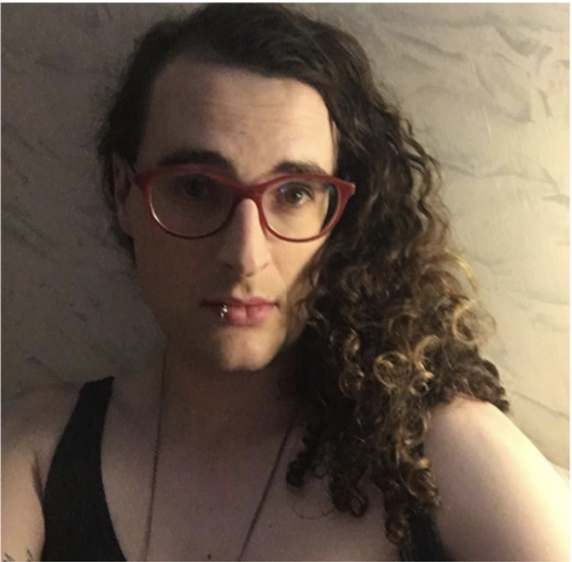[a 6-week online program via zoom; Saturdays at 12pm EST/9am PDT/5pm GMT+1; begins 7/17]
 Note: ‘Friendship in Translation’ is Part III of Zoe Tuck’s year-long “Year of Friendship Texts” project — each section of which can be taken independently or as part of your own ongoing engagement
Note: ‘Friendship in Translation’ is Part III of Zoe Tuck’s year-long “Year of Friendship Texts” project — each section of which can be taken independently or as part of your own ongoing engagement
Why friendship: Since friendship is not romantic love or a traditional family tie or a
relationship defined by economic exchange, it occupies a queer and potentially liberatory power
in our society.
Summary: Ferrante’s novel, first of a quartet, traces a friendship longitudinally from childhood
to adulthood. In My Brilliant Friend, as in Toni Morrison’s Sula, we get a picture of friendship’s
complexity, ambiguity, and trauma. We will ask questions about how shared context, in this case
a working-class neighborhood of Naples, shapes friendship. Although we will not be reading the
Italian edition, we will peruse selections from the original text and delve into the slang,
especially nicknames and terms of familiar address. Friendship, already transferred from
Ferrante’s imagination into text, is then translated from Italian into English. What might be lost,
changed, or added in the process (and what does this have to say about the processes of
friendship and our perceptions of them)?
We will read The Ferrante Letters to find out how fiction is translated into a criticism which acts
as a medium for collaboration and correspondence (two signal practices of friendship). We will
watch the TV adaptation to find out how the fictive is translated into the filmic.
Before and after adaptation or metaphorical translation into other forms, there is the friendship
between Elena and Lila: electric, agonistic, loving, and brutal. This friendship, its resonance with
us, what it brings up in our memories ought to be the central task of the class. My hope is for us
to work in concert to make a container stable enough to hold this work.
Logistics: We will meet once a week for two hours on zoom, with time divided between
discussion of the reading and writing exercises in support of the ongoing epistolary project.
Recordings of classes and transcripts will be made available to participants, along with weekly
video lectures, lecture notes, and secondary readings, when applicable.
The sequence: The classes on friendship in this year-long series are discrete units. Participants
need not have taken another of the classes in the sequence. The next class in the sequence,
starting after Friendship in Translation ends, will delve deeper into friendship in translation and
friendship as mediated by poetry, via Jean Daive’s Under the Dome: Walks With Paul Celan,
translated by Rosmarie Waldrop. This group will begin in September.
Texts:
My Brilliant Friend by Elena Ferrante, translated by Ann Goldstein (Europa Editions 2012)
The Ferrante Letters: an Experiment in Collective Criticism by Sarah Chihaya, Merve Emre,
Katherine Hill, and Jill Richards (Columbia University Press 2020)
My Brilliant Friend, the HBO series
 About the Facilitator: Zoe Tuck was born in Texas, became a person in California, and now lives in Massachusetts, where she is building the Threshold Academy, a future bookstore and non-traditional educational / performance space. She co-curates the But Also house reading series. Zoe is the author of Soft Investigations(Daisy Mayhem Books 2019) and Terror Matrix (Timeless, Infinite Light 2014). She is currently blogging about books, writing a trans feminine epic poem, and chipping away at an autobiographical novel. Find out more at zoetuck.com.
About the Facilitator: Zoe Tuck was born in Texas, became a person in California, and now lives in Massachusetts, where she is building the Threshold Academy, a future bookstore and non-traditional educational / performance space. She co-curates the But Also house reading series. Zoe is the author of Soft Investigations(Daisy Mayhem Books 2019) and Terror Matrix (Timeless, Infinite Light 2014). She is currently blogging about books, writing a trans feminine epic poem, and chipping away at an autobiographical novel. Find out more at zoetuck.com.
What’s the point of reading and thinking deep thoughts while we descend ever deeper into political and ecological chaos?
I believe that dreaming and contemplating in common are the ground for a deeper and more nuanced understanding of existence and that this more nuanced understanding is the ground for meaningful action in the world.
ALL ACCESS PRICING MODEL / PAY WHAT YOU CAN / COMPARISON COSTS:
Liminal Lab is committed to providing a source of income for our collaborators and facilitators in an increasingly precarious time for culture workers and educators. However, no one will ever be turned away for lack of funds. We ask that those who can pay the suggested price, and/or help cover the cost of scholarship slots in each of our programs by sponsoring other participants.
- Compare the below to the cost for a similar accredited workshop in a university setting (where most of the $$$ goes to institutional bloat): $1035 — we show you this so we can begin to think about wtf is happening in our institutions, where both students and faculty get the short end of the stick.
- At a standard “Market Rate,” at arts orgs: $350*
- Recommended Sliding Scale: $30-50/session → $180-300 for the series
- Precarity Pricing: $10-20/session
- Barter / Volunteer / No Cost Option Available
- Membership / Sponsorship: You may now become a member of Liminal Lab! Which allows you to support as well as participate in this and other programs. By becoming a member, you can also sponsor low or no fee participants in this workshop with a donation of any size.
**hey friend, did you know? you can click here to support low or no cost participation for others!** (or to become a member, supporting all OS/LL projects and programs!)


